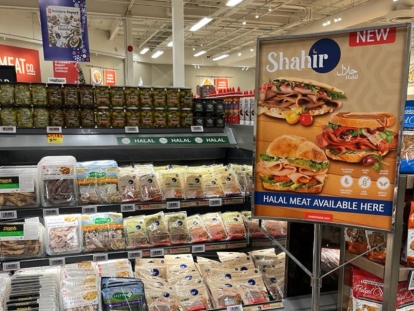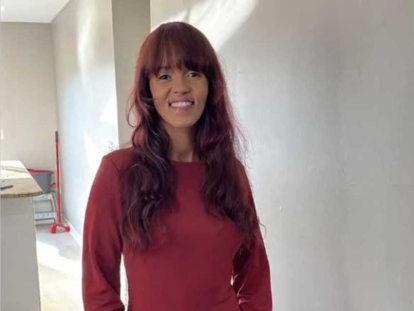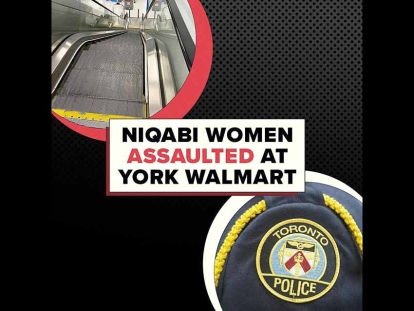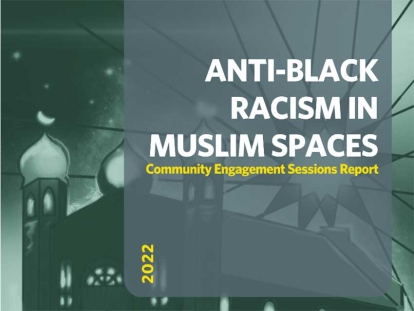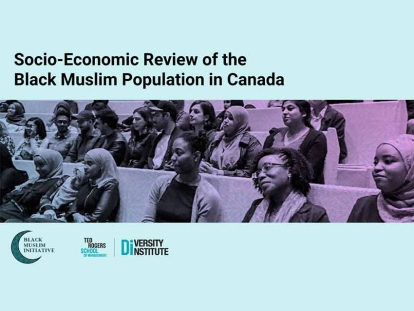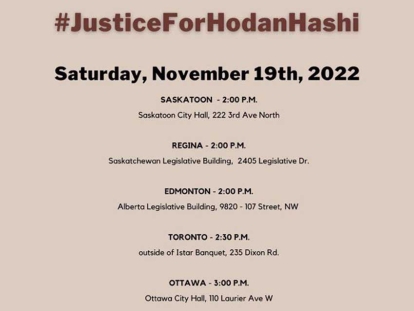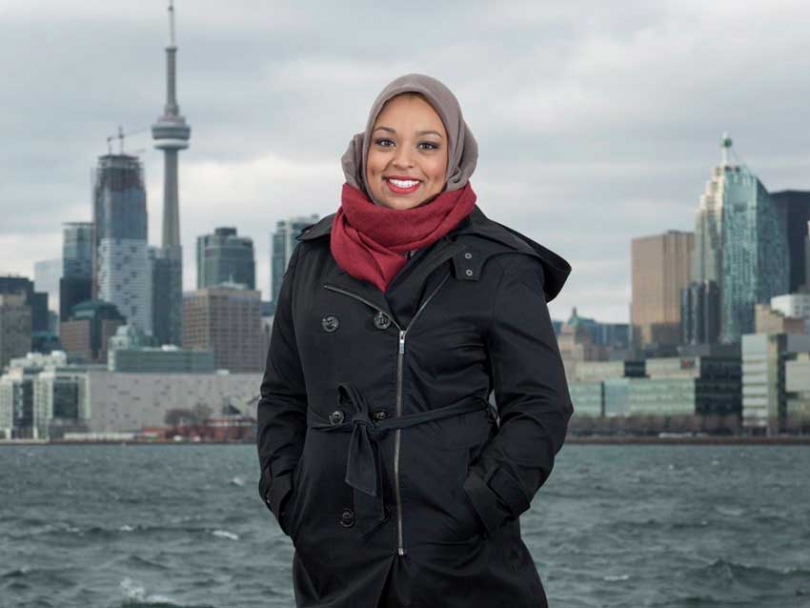 Muslim Link interviewed CityNews Toronto reporter Ginella Massa about life after making history as the first hijab-wearing woman to anchor mainstream news in North America
Robin Kuniski http://www.robinkuniski.com/
Muslim Link interviewed CityNews Toronto reporter Ginella Massa about life after making history as the first hijab-wearing woman to anchor mainstream news in North America
Robin Kuniski http://www.robinkuniski.com/
Sep
Journalist Ginella Massa on Being an Outsider and Becoming a Woman of Influence
Written by Chelby DaigleCityNews Toronto reporter Ginella Massa will be speaking at the season premiere of the Women of Influence Evening Series on Wednesday September 6 in Toronto. She will be exploring the topic of Breaking Barriers: How to Defy Expectations and Develop the Career of Your Dreams.
Muslim Link interviewed Ginella about becoming a role model for so many Muslim women and how her experience as an “outsider” within Muslim Canadian communities is an advantage when it comes to doing a better job of covering new stories that explore the complexity of the Muslim Canadian experience.
How has life changed for you since you became the first hijab-wearing woman to anchor mainstream news in North America?
For me work wise not much has changed. I still go to work every day and file a story for the six o’clock or eleven o’clock news.
It just means I have gotten a little bit more exposure and attention, both positive and negative.
It means that people recognize me when I am walking down the street. And a lot of times it is not even from our newscast. People will be honest and say ‘I don’t watch the news, but I know who you are, I read an article about you.’ That’s interesting and a little bit weird, but also really fun.
I am always inspired and really pleased when people, especially young women and young Muslim women, come up to me and say how much they love seeing me on TV and how important it is for them to see that representation. That really pushes me to keep working hard. It also helps me ignore the negative attention that came with that exposure, because it did come.
Could you talk about some of that negative attention?
The reaction has been overwhelmingly positive. But then there is a small minority of people who feel the need to write me nasty tweets and messages. A lot of these people have never read my work or have never seen the stories I have covered. They just saw a headline about a hijab-wearing reporter and decided they were offended. They just see me as an example of how ‘Islam is taking over!’ and ‘Creeping Sharia!’ and she wearing ‘a symbol of oppression’. I try really hard to not let it get to me because I know it just comes mostly from a place of ignorance and is not really a judgement on my work.
I am here to be a journalist. I am happy to take criticism about my work as a journalist. If people think I have been unfair or have not asked the right questions, I am always open to have that conversation. But if it is just a criticism about how I have chosen to dress that is really not my problem, that’s theirs.
You had some unexpected supporters as well?
Yes, Michael Taube wrote a column about me and it was probably the only piece of writing about me that made me cry. Here is this guy who is a conservative commentator; he and I do not see eye to eye on many political issues. I had worked with him as a producer; I had booked him on our show many times, so we had a professional relationship. He was always very friendly, polite and courteous. But the way that he wrote defending me as a professional, he really debunked a lot of the assumptions some people were making about me as a professional journalist because I am a woman who wears hijab. They were assuming I would have certain biases or only care about certain issues; he really debunked all of that. He said ‘I’ve worked with her and she is a consummate professional and she always puts substance above everything else so I don’t doubt that she will be able to do her job and do it well no matter whatever her personal opinions might be’.
Isn’t that what we hope all good journalists will do, check their biases?
Exactly! That’s the point that I am always trying to make. Every single one of us has biases.
I get this question all the time about how can I be a good journalist when I obviously must have X, Y or Z opinion as a Muslim. I think that’s an absurd question because everybody has biases. Some of them are just more obvious than others.
I often feel that I have to be harder on myself because I am scrutinized at a much higher level because I am Muslim and wear hijab. So I often do step back and ask myself tough questions, and try to make sure that as much as possible I am not allowing my biases to cloud my writing and that I am being fair to people who I may have a different opinion than. That is something I am conscious of every day. I don’t know if I always succeed but I’m trying because I want to be a good journalist.
At least the fact that I’m obviously Muslim means I am a lot more upfront about my biases. There are a lot of journalists with lots of biases who hide them very well but it comes out in their writing.
Your racial and religious identity makes you a "minority within a minority". You are both Black and Muslim, two communities that face discrimination within Canadian society. You are also a "minority" in both of these communities as you are an Afro-Latina and were raised within a minority branch of Islam. How do you feel these identities help to influence your work as a journalist and your ability to be a role model?
I will be honest and say that I have always felt like an outsider. There is really no circle amongst all of those identities in which I feel like I truly belong.
I was born in Panama. So, I was born into a Spanish-speaking family. All of my extended family is Catholic, my own father is Catholic. My parents are divorced. My mother converted to Islam when I was very young so I was raised in the religion. So my Islam became a bigger part of my identity than my Latin American roots.
But that being said, I never really felt like I fit into the Muslim community 100% because I wasn’t South Asian, I wasn’t Arab, I wasn’t Somali, although often that is what people would mistake me for. So even in Muslim spaces, I never really fit in.
I am going to be completely candid and say that sometimes it is frustrating the way that the Muslim community has now welcomed me with open arms and “lifted me up” as one of their own whose accomplishments they are cheering because growing up I didn’t often feel like they wanted me to be one of them.
However, I don’t want to harbour any bad feelings and say ‘I don’t want anything to do with you people because you didn’t want anything to do with me before I was famous!’ I try to move it forward in a positive way because when a lot of people look at me, they just see a Muslim, they just see a woman in hijab. Even if Muslims don’t see that, a lot of the wider society does, so I do feel a responsibility to be a positive voice for the Muslim community and a positive face for the Muslim community and to do the best that I can to empower other Muslims, to bring their voices to the media, so they can see that they can do this too, and to offer whatever expertise I can to Muslim community members. In the past, I used to do media training for Muslim communities to help them better engage with news outlets.
When it comes to being from a different sect of Islam, I identify as Muslim first. I go to all sorts of different mosques. That’s also a result of feeling like I don’t really belong in one Muslim community. Even though my family identified as Shia Muslim, we used to go to all sorts of different mosques, both Sunni and Shia, with different cultural affiliations; we kind of just went to where the programs and lectures were interesting. That has allowed me to feel like I didn’t necessarily have to just align myself with one group of Muslims.
One of the challenges I see for Muslims working in journalism is that they may not have a very good sense of the diversity and complexity of Muslims in Canada but the news directors expect them to cover every Muslim story. They may try but often you can see the lack of knowledge or the glaring biases in how these Muslim journalists are writing about other Muslim communities they don’t belong to. So because you are a “minority within a minority” and you and your family have connected with a wide range of Muslim communities in Toronto across different branches of Islam and different cultures, do you think that helps you do a better job as a journalist?
Absolutely! I have interacted with a wide range of Muslims in Toronto. I think a lot of the mainstream media in Western societies doesn’t realize how diverse Muslims are. They have this idea in their head of an immigrant Muslim family but there are Muslims who have been in Canada for generations. There are Muslims who are politically Conservative! I do have a pretty clear understanding that Muslims just don’t look one way or have one experience or point of view. I think that does do a service to my reporting because it means I am not just seeing the diversity in Muslim communities in Toronto, I’m seeing the diversity in Toronto.
You have said that you owe your "big break" to a news director in the relatively small city of Kitchener. What advice would you give to people who are in the position to give talented young people their "big break" but who might worry about the perceived "risks" involved in giving someone from a marginalized and misunderstood community such a platform?
He wasn’t the only person to give me a chance. He was the first person to give me a chance on air. He didn’t know me. We didn’t have any sort of connection or relationship before. So, I don’t know why he decided to hire me. I did ask him when I left for CityNews if he knew how big of a risk he had taken and how big of a statement he was making when he hired me and he said ‘You know, we thought about it a little bit, but not really. I just saw a good journalist and I thought you would be a good fit.’ I think for him he put skill and talent first. And that was the same for my boss at CityNews when he had me anchor. Someone asked our news director in an interview if they thought about what the impact would be when they had me anchor and he said ‘We thought about it for like five seconds. We thought, well she’s earned it. She’s led our newscast many times before. She has proven herself to be more than capable, why shouldn’t we let her anchor?’
I think the main thing is to see people for their work, their talent, and their skill. But at the same time, I don’t want people to be “colour-blind” and dismiss the fact that our ethnicity, our religion, our socio-economic background, or whatever our outward appearance may show, may mean that we have had to work twice as hard to get half the recognition and may mean that we have had doors closed on us.
I have never had anyone tell me to my face that I won’t hire you because of your hijab but that doesn’t mean those attitudes don’t exist. We have anti-discrimination laws in this country so people know that they can’t say something like that to me. So instead, they may say ‘You don’t have enough experience or we don’t think you are the right fit or we have decided to go in a different direction, etc.’ That’s why I have had to focus really hard on my work ethnic to make sure that they didn’t have any other reason to say no to me.
How would you define a "Woman of Influence"? Do you consider yourself one, and, if yes, what do you hope to achieve with this influence?
I guess I would consider myself a Woman of Influence only because what I am doing I have never seen done before. I have never seen anyone who looked like me on TV as a reporter. So I hope that by changing that narrative, by adding my image to the zeitgeist (the cultural climate of a society) now people can say ‘Well, Ginella’s done it and the sky didn’t fall, so we can do more of this.’
I hope that it is not just a flash in the pan and people don’t say, ‘Well, we hired one hijabi reporter so our work here is done, diversity has succeeded, and racism is over!’
We need more of this. I might be the first but I certainly don’t want to be the last.
I think a Woman of Influence is someone who can inspire others to see what can be possible; she’s someone who can give an example of what someone else might be able to achieve.
I didn’t have a role model on TV that I could look at and say ‘I want to be the next So and So’.
I had to be the first ME.
*******************************
Purchase tickets for the Women of Influence with Ginella Massa on September 6th in Toronto online here.
Check out Ginella Massa’s interview with Hodan Nayaleh on Integration TV online
Follow Ginella Massa on Twitter here
Check out Ginella Massa’s website here
This article was produced exclusively for Muslim Link and should not be copied without prior permission from the site. For permission, please write to info@muslimlink.ca.

